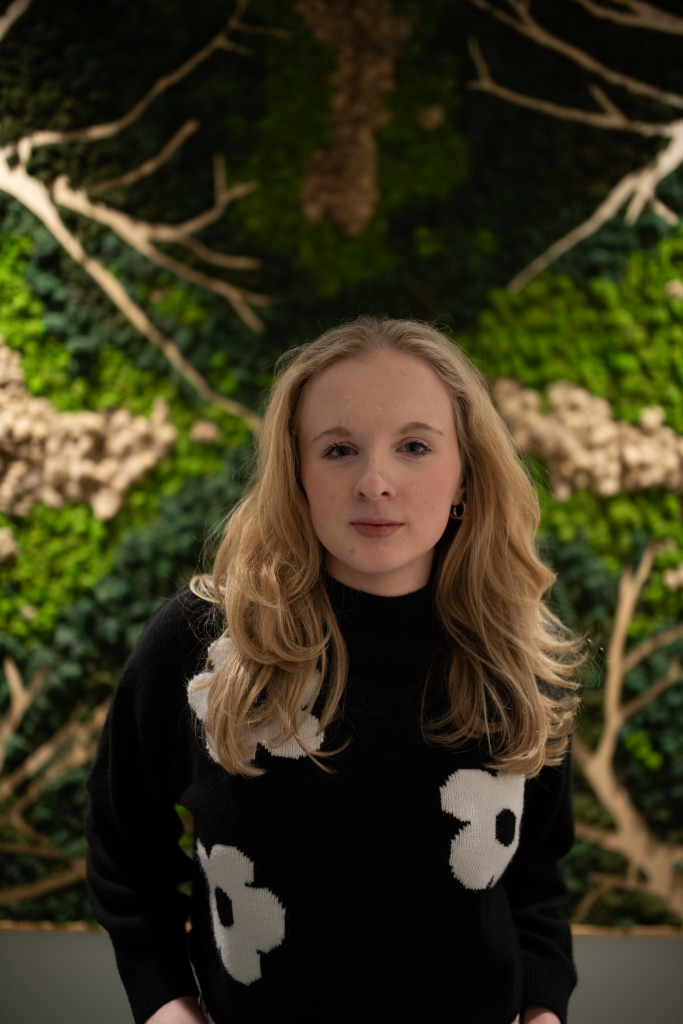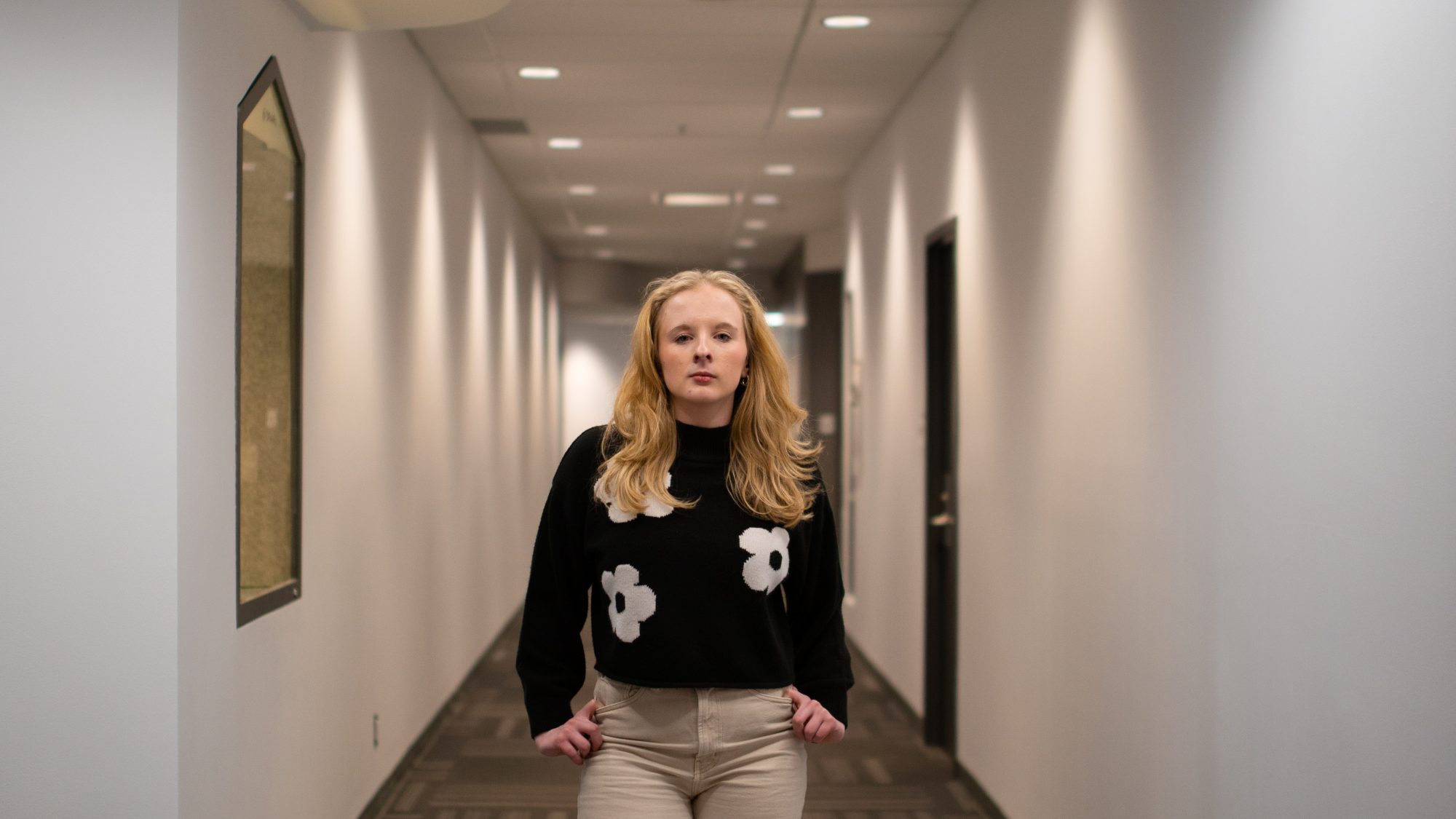Living climate change is a series of personal stories from university students in British Columbia who have lived through climate-related emergencies and disasters.
by Emma Cosman, as told to Arsh Qader Sethi, edited by Sean Holman
Photos by Phil MacLachlan
Emma Cosman is in her fourth year of a bachelor’s degree in communications with a minor in English. She is a communications assistant and events coordinator for BC Wood, a trade association for the lumber and value-added wood industry. Emma was 18 years old and enjoying her last summer before university when the Western North America heat wave hit.
You could feel the heat coming in and you felt it increasingly get hotter. It was getting worse and worse as it was happening. The fires were raging in the Interior and there was fear in that. I even remember seeing signs all-around. On the way to my local rec centre, there was a big poster that had a BC fire warning on it. It went from moderate to severe. And it would just keep going up. Every day, it would be pointed at extreme severe.
“I remember the smell of the heat: it’s heavy.”
— Emma Cosman
You can smell that everyone maybe hasn’t showered. As the days went on, it was getting hotter. That was the sign to me that not only were the forest fires getting more severe, that the heat wave was going to last. I just wanted to make sure that my grandparents were okay. Local restaurants would close down, because they could not put the workers through that level of heat exhaustion. They feared for them.

My home doesn’t have air conditioning. I slept in the basement. I was working at a grocery store at the time and I would seek out going to work and going to these places that had air conditioning. My manager would leave ice cream bars in the back. She was like, “We just need everyone to be in the best mood possible.”
We would get people coming in, literally just to browse around and to be in the air conditioning because they were exhausted from the heat. You could tell that they were dreading having to go back to the places they were living in. No one knew what to do. It was a pressure. I was able to smile and ask people how their day was going and create that space where people were able to just find that little area of solitude.
When fires were being more controlled, it made me appreciate being able to just go somewhere, breath in the fresh air and not have to look at the fog that was coming in from the smoke. I think a lot of the time, we deeply care about these issues so much and we don’t do anything about them. We need to start taking action to our words – even just doing small things to reduce your footprint. It’s not going to turn climate change on its head. It’s putting in that effort that you recognize this issue is happening.
This testimony was co-created during a Climate Disaster Project workshop at the 2023 Youth Media Education Summit, hosted by Simon Fraser University. The project is an international teaching newsroom that works with disaster-affected communities to document and investigate their stories. For more information, please visit www.climatedisasterproject.com.
